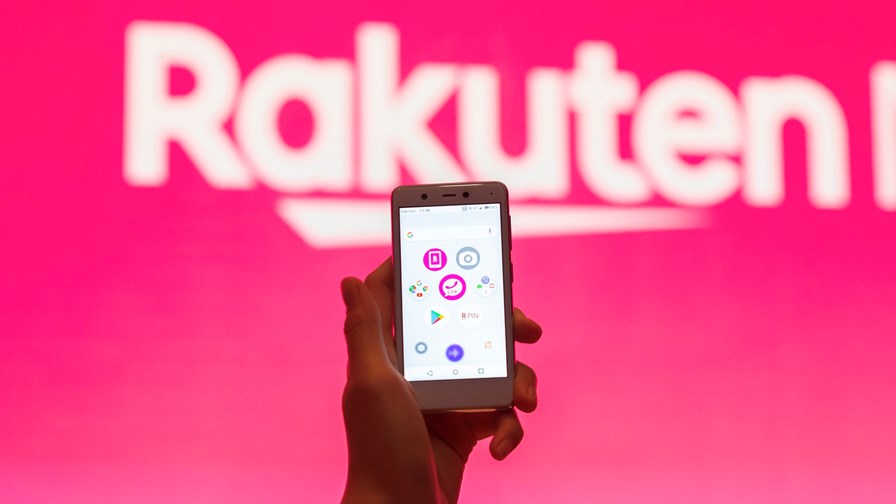
- Rakuten Mobile has pumped billions into the construction of its national greenfield 4G and 5G network in Japan
- That investment, and Rakuten Mobile’s slow customer base and revenues growth, has weighed heavily on Rakuten Group’s finances
- Now Rakuten Mobile has agreed a sale and leaseback deal for some of its network assets that will raise up to $2bn
In a bid to shore up its finances after years of heavy investments, Rakuten Mobile has agreed a sale and leaseback deal with a consortium of investors led by Macquarie Asset Management that will raise up to $2bn for the Japanese mobile network operator.
Rakuten Mobile is to sell “a portion of its mobile network assets” (unspecified) to a consortium of infrastructure investors, led by Macquarie Asset Management and including British Columbia Investment Management, and then lease back the assets (for an initial period of 10 years): Rakuten Mobile will continue to manage and operate the network assets. The company had not responded to questions about which assets might be sold as this article was published.
Final details are yet to be agreed but the deal is set to raise between 150bn and 300bn Japanese yen ($1bn and $2bn) for Rakuten Mobile. The proceeds will be put towards the mobile operator’s capital expenditure (capex) and working capital budget. Rakuten Mobile’s capex for 2024 is expected to be 100bn Japanese yen ($686m), while in 2025, “maintenance cost is expected to be limited, and there is no expected need for a significant investment related to capacity expansion. Therefore, the capex is expected to remain at a subdued level,” noted the operator in its announcement about the sale and leaseback plans.
But while the deal might provide a buffer for Rakuten Mobile’s ongoing capital investment requirements, it will also add a sum to the company’s operating costs in the form of the lease payments to Macquarie and its partners, which will be structuring this deal to make a healthy profit. What is hard to determine currently, without knowing exactly what assets Rakuten Mobile is giving up to the infrastructure investors, is to what extent Macquarie and its friends will be able to lease the assets to other paying customers on a wholesale basis.
The deal is an indication that Rakuten Mobile’s parent company, Japanese digital services giant Rakuten Group, has lost its appetite for investing funds into the greenfield mobile network, into which it has pumped more than $10bn in capital over the past five years. The decision to go big on the upfront investment in the mobile network infrastructure is one that Rakuten Group still maintains was the right course of action and one that will pay off in the long run.
However, the decision has also weighed heavily on Rakuten Group’s finances, as the significant losses stemming from Rakuten Mobile, as it invested heavily while still only having a small revenue-generating customer base, tipped the parent company into a string of quarterly losses: Without the financial burden of Rakuten Mobile, Rakuten Group would have been racking up significant net profits over the past four years.
In the first quarter of this year, Rakuten Mobile reported revenues of 62bn yen ($425m), up by 7.1% year on year, and an operating loss of 73bn yen ($500m) (an improvement of about 25% compared with a year earlier). Without that operating loss for the mobile business, Rakuten Group would have reported an operating profit of about 48bn yen ($329m) for the first quarter.
As you’d expect, Rakuten Group CEO Mickey Mikitani is putting a positive spin on the development. “I am delighted to announce this innovative partnership with Macquarie Asset Management, one of the world's leading infrastructure investors. They strongly believe in our vision for the future, and together, we've made our financial foundation even stronger. Rakuten Mobile is already well on its way to profitability, and with our new initiative, we will continue to build on this momentum as we aim to reach profitability even faster and become the top mobile carrier in Japan,” noted Mikitani.
Rakuten Mobile has targeted the end of 2024 as the timeline for achieving earnings before interest, taxes, depreciation and amortisation (EBITDA) break even, by which point it believes it will have a customer base of between 8 million and 10 million: It reached the 7 million subscriber base point in June.
A further update on customer numbers and the road to profitability, and perhaps more insight into this sale and leaseback deal, will be unveiled when Rakuten Group reports its second-quarter results on Friday 9 August.
Macquarie is also pumped about the deal, of course. “We believe Japan’s commitment to revitalise its digital economy and accelerate the pace of digital transformation presents significant opportunities to investors in the digital infrastructure sector. The Rakuten Ecosystem and Rakuten Mobile’s network is at the very forefront of this digital evolution, and we are excited to partner with Rakuten Mobile to support and accelerate its business growth," stated Verena Lim, co-head of Asia-Pacific Macquarie Asset Management Infrastructure and CEO of Macquarie Group in Asia.
- Ray Le Maistre, Editorial Director, TelecomTV
Email Newsletters
Sign up to receive TelecomTV's top news and videos, plus exclusive subscriber-only content direct to your inbox.




